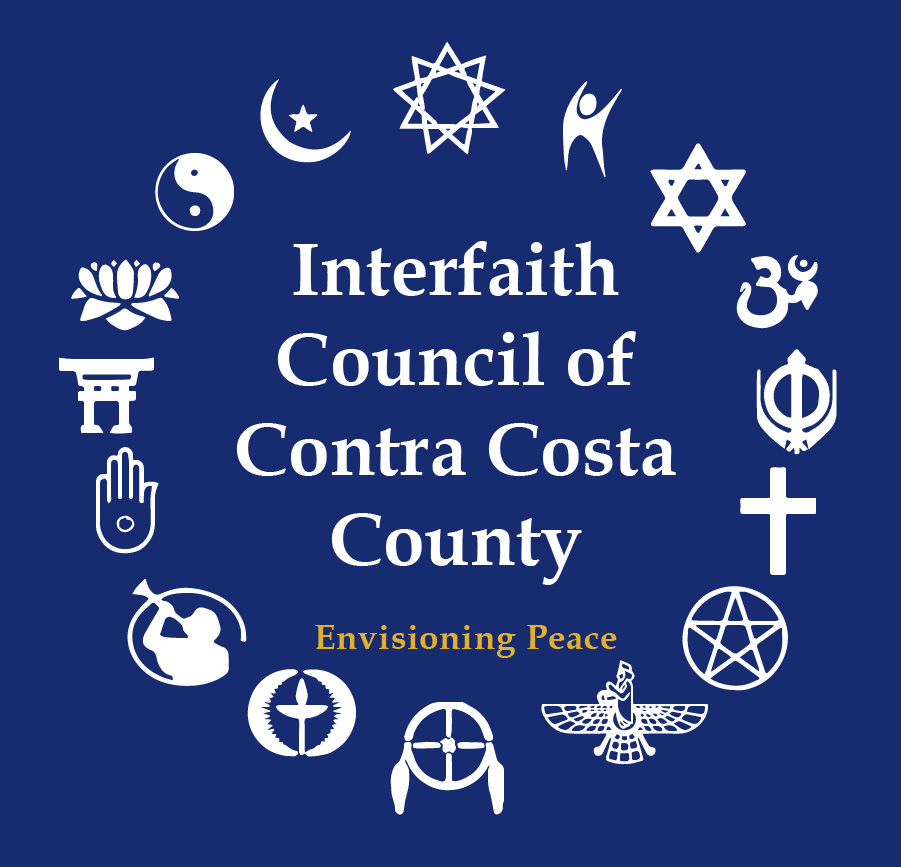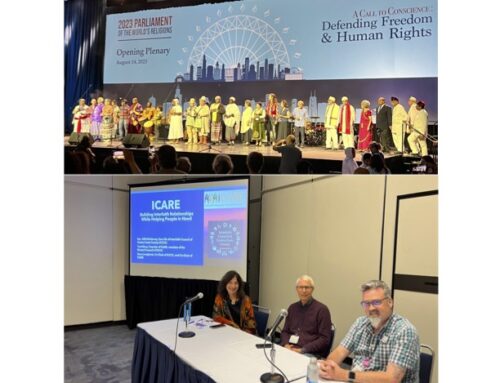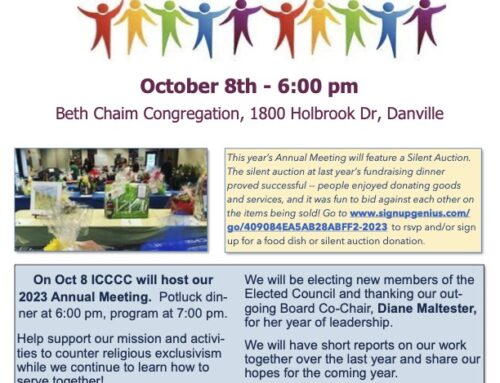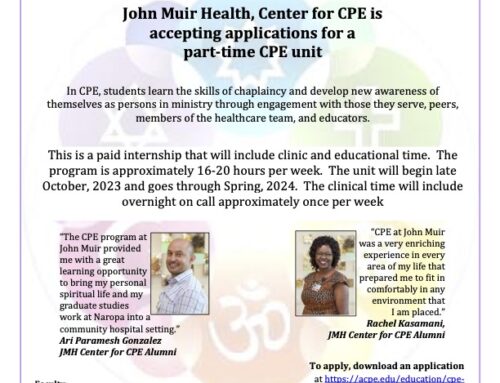Faith-based and humanist groups call on government to reaffirm American values
“Although the U.S. is a nation of immigrants and has a long history of welcoming refugees from diverse lands, we also have a history of different periods of xenophobia and exclusion, including the Chinese Exclusion Act, the internment of Japanese-Americans during World War II, and the rejection of Jewish refugees from Nazi persecution and genocide. None of these actions made our country more secure, and we can be certain that the great majority of our people do not support a repeat of such episodes.”
—Maha Elgenaidi, Executive Director of the Islamic Networks Group
“Any attempt to ban Muslim refugees based on their religion betrays our values and sends the un-American message that there are second-class faiths. Our country, founded by immigrants who established religious freedom as a bedrock principle, is better than this. A threat to anyone’s religious liberty is a threat to everyone’s religious liberty, and we as Baptists stand with those facing religious persecution around the world, regardless of their faith.”
—Amanda Tyler, Executive Director of the Baptist Joint Committee for Religious Liberty
San Jose – The Know Your Neighbor: Multifaith Encounters campaign, a program of the Islamic Networks Group (ING), released the following statement today in reaction to executive orders signed by President Donald Trump restricting immigration from a number of Middle Eastern and African countries.
The executive orders issued today and earlier this week by President Donald Trump require us to reaffirm basic values that we share with the great majority of Americans:
- Respect for diversity, pluralism, and religious freedom: Although the executive orders do not explicitly mention Muslims or their faith, several provisions target Muslims. As such, they violate the principles embodied in the First Amendment and our country’s commitment to religious neutrality.
- Care for the stranger and the needy: Except for the native peoples, since its founding the United States has been a nation of immigrants. Our country has a long tradition of welcoming and supporting immigrants and the needy; the rejection of refugees fleeing horrific violence flies in the face of the obligation to help and the hospitality that the American people have traditionally shown to those in need.
- Civil liberties: While these orders do not explicitly target particular groups, they clearly impact primarily one religion (Muslim) and one ethnicity (Latino). Singling out these groups reinforces and encourages existing prejudice and discrimination against them, including U.S. citizens and documented immigrants belonging to these groups.
- Unity and solidarity: Policies whose effect is to single out specific religious or ethnic groups violate the sense of national unity and solidarity that allows the diverse people of our nation to live in peace and harmony.
Although these measures purport to deal with the threat of terrorism, there is little evidence to support this claim. What they do, however, is to cast a dark cloud over the entire American Muslim population, making it all too clear that their significant contributions to American life are not welcomed. This impacts women in headscarves who have been the object of increased harassment and students in schools who have seen a rise in bullying in recent years due to anti-Muslim rhetoric which will increase with these policies. In response to the Executive Orders, we faith-based and humanist organizations call for an increase in:
- Interfaith engagement, including both interfaith dialogues and events bringing people of diverse traditions together for mutual encounter and learning. To get started, see this page.
- Education about Muslims and Islam, including presentations by Muslim speakers and “meet a Muslim” events in houses of worship or other public venues. To get started, see this page.
- Commitment to and training in being “upstanders” who respond supportively to incidents of hate and bigotry.
This is a time to come together as a community and uphold our sacred values. Therefore, in responding to the current situation, and to prepare for possible actions in the future that may likewise call our fundamental values into question, we commit ourselves, and call on all who share our concerns, to respect the principle of nonviolence in thought, word, and deed.
- We will maintain an attitude of charity and openness to all, including those with whom we most profoundly disagree. We will seek to understand their motivations and assume that they are sincerely seeking what is right unless presented with clear evidence to the contrary. If we are people of prayer, then we will pray for their well-being and for wisdom for them and for ourselves.
- In our statements, we will condemn actions but not persons. We will speak firmly but respectfully of and with those whose words and actions we oppose.
Signed:
| Alliance of Baptists Alliance for Shared Values American Muslim Advisory Council Arizona Jews for Justice Baptist Joint Committee for Religious Liberty Bay Area Interfaith Connect Bend the Arc Jewish Action Bridges of Faith Trialogue, Cincinnati California Institute for Human Science Interfaith Circle Center for Inquiry Colorado Muslim Speakers Bureau Council of Islamic Organizations of Kentucky Delaware Valley Speakers Bureau Euphrates Institute Global Alliance Interfaith Networks Global Immersion Project Interfaith Alliance Interfaith Arkansas Interfaith Center at the Presidio Interfaith Center of New York Interfaith Council of Central Florida Interfaith Council for Peace and Justice, Ann Arbor Interfaith Ministries for Greater Houston Interfaith Paths to Peace Interfaith Youth Core Islamic Center of Greater Cincinnati Islamic Education & Resources Network (ILearn) Islamic Networks Group Islamic Society of Greater Houston Islamic Speakers Bureau of Alabama Islamic Speakers Bureau of Arizona Islamic Speakers Bureau of Dallas/Fort Worth, Texas Islamic Speakers Bureau of Edmonton, Canada Islamic Speakers Bureau of Greater Houston Islamic Speakers Bureau of Saint Louis Islamic Speakers Bureau of San Diego |
Islamic Speakers Bureau of Santa Barbara Jewish Community Relations Council of the San Francisco Bay Area Jewish Council for Public Affairs Lutheran Social Services of the Southwest Milstein Center for Interreligious Dialogue Minnesota Interfaith Power and Light Monmouth Center for World Religions and Ethical Thought Muslim Coalition of Connecticut Muslim Community Center, East Bay National Council of Churches National Sikh Campaign Network of Spiritual Progressives New Jersey Islamic Networks Group Pacifica Institute Religions for Peace USA Religious Action Center for Reform Judaism San Francisco Interfaith Council Seattle Islamic Speakers Bureau Shoulder to Shoulder Campaign Silicon Valley Interreligious Council Sisterhood of Salaam Shalom South Coast Interfaith Council Speakers Bureau of Nebraska Spokane Interfaith Council Tikkun Magazine Tri City Interfaith Council United Religions Initiative United We Dream Houston Uri L’Tzedek: The Jewish Orthodox Social Justice Movement Valley Beit Midrash: The Jewish Pluralistic Center Washington Ethical Society Welcoming Gainesville Wisdom Circle Ministry |
The Know Your Neighbor: Multifaith Encounters (KYN-ME) campaign is a program of the Islamic Networks Group (ING) whose mission is to increase religious literacy and build relations among Americans of all backgrounds. In pursuit of this mission, the KYN-ME campaign, which was first initiated in partnership with the White House in 2015, aims to build interreligious and intercultural understanding, empathy, and respect by promoting face-to-face encounter between people of diverse faiths and worldviews. Know Your Neighbor: Multifaith Encounters works to foster understanding and dialogue by encouraging Americans to get to “Know Your Neighbor.”






